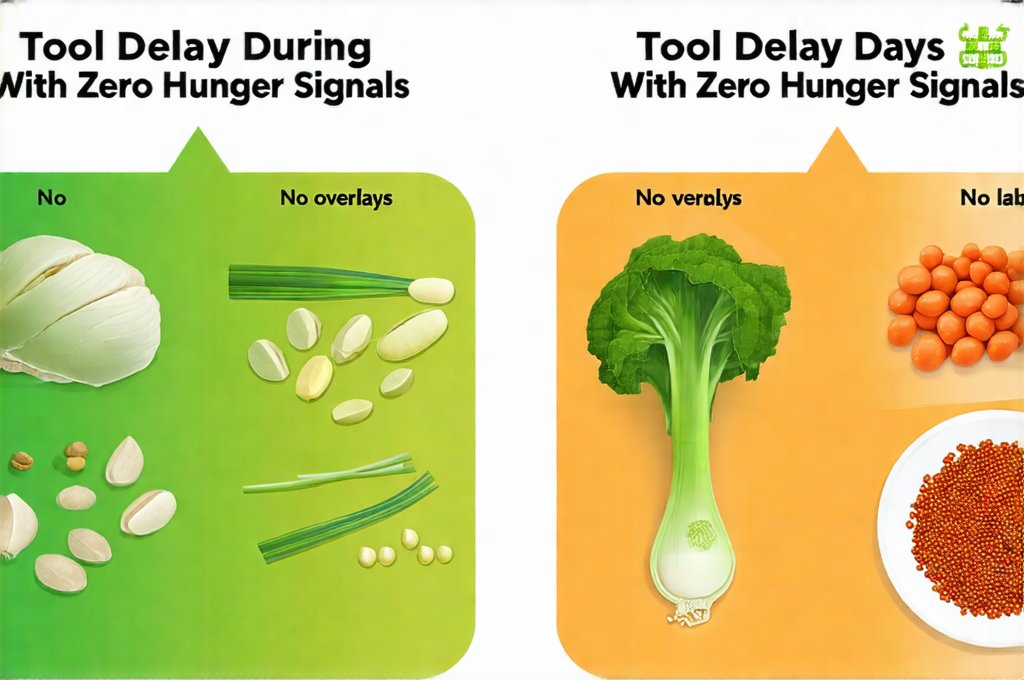The human digestive system is an incredibly complex network, often operating seamlessly in the background of our daily lives. We generally expect a fairly predictable pattern – eating when hungry, experiencing natural urges to eliminate waste, and feeling relatively comfortable along the way. However, disruptions to this rhythm are common, and one particularly frustrating experience is delayed stool passage despite completely lacking any sensation of hunger. This isn’t simply constipation; it’s a distinct scenario that suggests a disconnect between digestive function and appetite regulation, often leading to discomfort, bloating, and anxiety about bowel habits. It begs the question: what happens when your body isn’t signaling the need for food, yet simultaneously seems unable or unwilling to eliminate waste efficiently?
This phenomenon can stem from a variety of factors – ranging from lifestyle choices and psychological stress to more complex physiological mechanisms affecting gut motility and nerve function. Understanding these potential causes is crucial not only for alleviating immediate discomfort but also for preventing chronic issues and restoring a healthy digestive balance. It’s important to remember that the digestive system doesn’t operate in isolation; it’s intimately connected to our nervous system, hormonal balance, and even our emotional state. Therefore, addressing this type of stool delay often requires a holistic approach, considering not just what we eat, but also how we manage stress, sleep, and overall well-being. Consider the impact of frequent colds and potential digestive diagnostics if you experience recurring illness alongside digestive issues.
Understanding the Disconnect: Hunger vs. Elimination
The typical relationship between hunger and bowel movements is intertwined. When we anticipate eating (or even think about food), our digestive system gears up – stomach acid increases, intestinal motility rises, and hormones are released to prepare for processing nutrients. This preparatory activity often stimulates the urge to defecate, especially after a meal. However, when hunger signals are absent, this natural sequence is disrupted. The body isn’t receiving the cues to initiate digestion in the same way, which can lead to slower gut transit time and difficulty passing stool. It’s not necessarily that food isn’t moving through; it’s more about a lack of coordinated digestive activity even when waste products are ready for elimination.
This disconnect can be particularly noticeable in individuals who experience periods of reduced appetite due to stress, anxiety, or restrictive dieting. When the body is focused on coping with psychological stressors, resources are diverted away from non-essential functions like digestion, leading to a slowdown in gut motility. Similarly, very low-calorie diets or prolonged fasting can also suppress digestive activity and contribute to stool delay. It’s vital to differentiate this from typical constipation where there’s often a feeling of fullness or bloating – here, the absence of hunger is a defining characteristic alongside the difficulty with elimination. If you are experiencing setbacks, supportive food choices can make a difference.
Furthermore, certain medications (like some antidepressants or pain relievers) can have side effects that impact gut motility and appetite simultaneously, exacerbating this issue. The complex interplay between brain-gut communication and external factors means there isn’t always a straightforward explanation for why stool delay occurs in the absence of hunger; it often requires careful consideration of individual circumstances and potential contributing factors. Recognizing this distinction – delayed stool without hunger – is the first step towards finding effective solutions. Understanding how to handle gut health can be particularly helpful during stressful times.
Potential Contributing Factors & Lifestyle Influences
Beyond psychological stress and medication side effects, a number of lifestyle factors can contribute to stool delay even when not experiencing hunger. Dehydration is a significant one. Water is essential for softening stool and facilitating its passage through the digestive tract. Insufficient fluid intake leads to harder stools that are more difficult to eliminate. Similarly, a lack of dietary fiber – found in fruits, vegetables, whole grains, and legumes – can slow down gut transit time and contribute to constipation. Fiber adds bulk to stool, making it easier to move through the intestines.
Another crucial factor is physical inactivity. Regular exercise stimulates intestinal contractions, promoting healthy bowel movements. A sedentary lifestyle, on the other hand, can lead to sluggish digestion and increased risk of constipation. Even moderate physical activity, such as walking or yoga, can make a significant difference. Ignoring the natural urge to defecate when it arises (even if infrequent) is also detrimental. Repeatedly suppressing this urge can weaken the signals that prompt bowel movements, leading to further delay. This often happens due to busy schedules, lack of convenient facilities, or feeling self-conscious about using public restrooms.
Finally, imbalances in gut microbiota – the trillions of bacteria residing in our intestines – have been increasingly linked to digestive issues, including constipation. An unhealthy gut microbiome can disrupt normal digestive function and contribute to inflammation, impacting gut motility. Supporting a healthy gut through dietary choices (probiotic-rich foods like yogurt or kefir) and minimizing antibiotic use (unless medically necessary) is crucial for overall digestive health.
Addressing the Issue: Practical Strategies
If you’re experiencing stool delay without hunger signals, there are several practical steps you can take to alleviate symptoms and restore a healthy digestive rhythm. First, focus on hydration. Aim to drink at least eight glasses of water per day, and even more if you’re physically active or live in a hot climate. Second, gradually increase your fiber intake through dietary sources. Start with small amounts to avoid bloating and gas, and slowly work your way up to the recommended 25-30 grams per day.
- Incorporate fiber-rich foods into every meal: berries for breakfast, salads for lunch, and steamed vegetables with dinner.
- Consider a fiber supplement (like psyllium husk or wheat bran) if you struggle to get enough fiber from your diet alone – but always start slowly and drink plenty of water.
Thirdly, prioritize regular physical activity. Even a short walk after meals can help stimulate digestion. Fourthly, listen to your body’s cues and respond promptly when you feel the urge to defecate, even if it’s not frequent. Don’t ignore or suppress this urge. Finally, consider incorporating stress-reducing techniques into your daily routine – such as meditation, yoga, or deep breathing exercises – to help calm the nervous system and support healthy digestive function. For recovery days with sluggish digestion, comfort meals can provide gentle nourishment.
The Role of Gut Health & Probiotics
As mentioned earlier, a balanced gut microbiome is essential for optimal digestion. An imbalance (dysbiosis) can disrupt normal bowel movements and contribute to stool delay. Probiotics – live microorganisms found in fermented foods or supplements – can help restore a healthy balance of gut bacteria. Foods like yogurt, kefir, sauerkraut, kimchi, and kombucha are excellent sources of probiotics.
- When choosing a probiotic supplement, look for strains that have been shown to be effective for constipation relief, such as Bifidobacterium and Lactobacillus.
- Start with a low dose and gradually increase it to assess your tolerance.
It’s also important to consider the role of prebiotics – non-digestible fibers that feed beneficial gut bacteria. Prebiotic-rich foods include onions, garlic, asparagus, bananas, and oats. By nourishing your gut microbiome with both probiotics and prebiotics, you can improve digestive function and promote regular bowel movements. A healthy gut isn’t just about eliminating waste; it’s about overall health and well-being. Gut rest techniques can also provide relief during periods of discomfort.
When to Seek Professional Guidance
While many cases of stool delay without hunger signals can be managed with lifestyle modifications, it’s important to seek professional guidance if symptoms are severe or persistent. If you experience any of the following, consult a doctor:
- Severe abdominal pain or cramping
- Rectal bleeding
- Unintentional weight loss
- Changes in bowel habits that persist for more than two weeks
- Nausea or vomiting associated with constipation
These symptoms could indicate an underlying medical condition, such as irritable bowel syndrome (IBS), inflammatory bowel disease (IBD), or a structural abnormality in the colon. A healthcare professional can perform a thorough evaluation to determine the cause of your symptoms and recommend appropriate treatment options. They may suggest diagnostic tests like stool analysis, blood tests, or colonoscopy to rule out any serious underlying issues. Remember that this information is not intended as medical advice; it’s essential to consult with a qualified healthcare provider for personalized guidance. If you’re dealing with fatigue during or after treatment, coping strategies can be helpful. Also, pay attention to stool signs during routine checks.


















